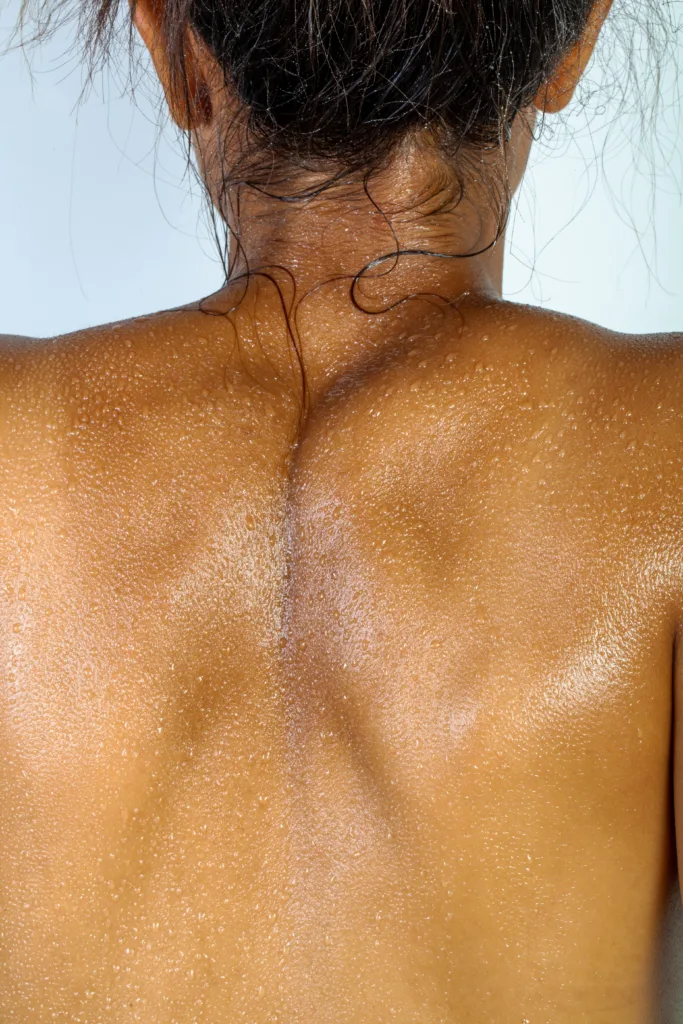The human skin is a complex organ that serves as the protective barrier between the body and the external environment. It is composed of several layers each with unique functions. The outermost layer, the epidermis, is responsible for protecting the body from external factors such as UV radiation, chemicals and microorganisms. The epidermis contains a protein called keratin that plays an essential role in making the skin waterproof and keeping it strong.
Keratin is a fibrous protein that is produced by specialized cells in the skin called keratinocytes. These cells are responsible for producing and maintaining the integrity of the epidermis. The keratin produced by the keratinocytes forms a network of fibers that makes the skin tough and resistant to damage.
One of the main functions of keratin is to waterproof the skin. The keratin fibers in the epidermis are tightly packed together, forming a barrier that prevents water from entering or leaving the body. This is important beause water is essential for the body to function properly. Without the protective barrier provided by keratin, the body would lose too much water and become dehydrated.
Another important function of keratin is to protect the body from mechanical stress. The skin is subjected to constant mechanical stress from activities such as walking, running, and even sitting. The keratin fibers in the skin act as a shock absorber, protecting the body from damage caused by mechanical stress.
Keratin is also responsible for giving the skin its strength and durability. The fibers in the epidermis are packed so tightly together that they form a strong, dense layer that is difficult to penetrate. This makes the skin less susceptible to damage from external factors such as UV radiation and chemicals.
In addition to its functions in the skin, keratin is also found in other parts of the body such as nails and hair. In nails, keratin forms a hard, protective layer that helps to prevent damage to the nail bed. In hair, keratin gives hair its strength, flexibility, and elasticity.
Keratin is a protein that plays an essential role in making the skin waterproof and keeping it strong. It is produced by specialized cells in the skin called keratinocytes and forms a network of fibers that make the skin tough and resistant to damage. Keratin is also found in other parts of the body such as nails and hair, where it provides similar protective functions. Understanding the role of keratin in the body is essential for maintaining healthy skin, hair, and nails.
What Is The Protein That Hardens Skin?
The protein that hardens skin is called collagen. It is the most abundant protein in the human body and is found in various connective tissues, including the dermis layer of the skin. Collagen provides structural support to the skin and helps to maintain its firmness and elasticity. It works by forming a network of fibers that hold skin cells together and provide a foundation for new cell growth. In addition to its role in skin health, collagen is also important for maintaining healthy bones, joints, and muscles.

What Is The Hard Waterproof Protein?
The hard waterproof protein is known as keratin. Keratin is a specialized protein that is primarily found in the skin and functions to provide strength and waterproofing to the skin. It is produced by cells called keratinocytes, which make up the majority of the outermost layer of skin. Additionally, keratin is also found in hair, nails, and other structures in the body that require strength and protection. It is a crucial component of the body’s defense aainst external factors such as water, heat, and physical trauma. keratin plays a vital role in maintaining healthy and resilient skin, hair, and nails.
What Is Responsible For Waterproofing The Skin?
The epidermis is responsible for waterproofing the skin. It contains proteins that make the skin impermeable to water and other liquids. These proteins provide a barrier that prevents water from entering the body and keeps the skin hydrated. One such protein is keratin, which is also found in nails and hair. The epidermis also contains lipids that help to seal in moisture and prevent dehydration. Together, these components work to keep the skin hydrated and protected from external factors such as water, chemicals, and other irritants.
Conclusion
The skin is a complex and highly specialized organ that serves a multitude of functions in the human body. It acts as a protective barrier against external factors such as UV radiation, bacteria, and physical trauma, while also regulating body temperature and allowing for the sensation of touch. The skin is composed of various layers, each with its own unique properties and functions. The epidermis is responsible for producing keratin, a protein that helps to waterproof and strengthen the skin, while the dermis cntains collagen and elastin fibers that provide elasticity and firmness. Maintaining healthy skin through proper skincare practices, a balanced diet, and adequate hydration is crucial for overall health and wellbeing.
